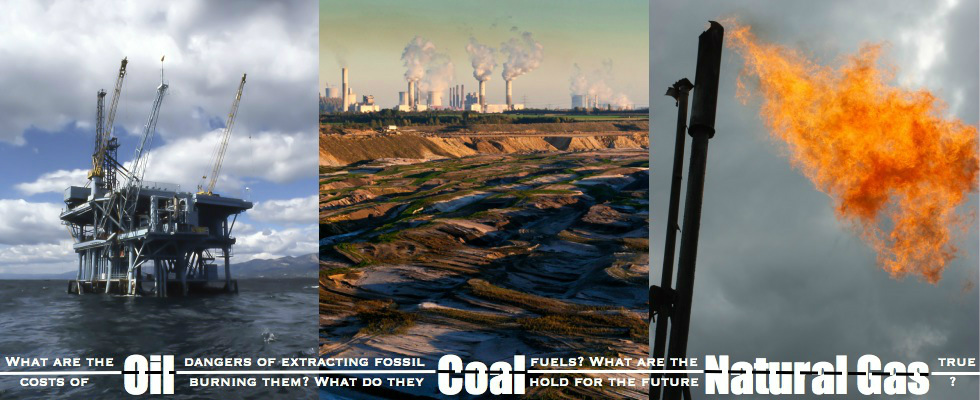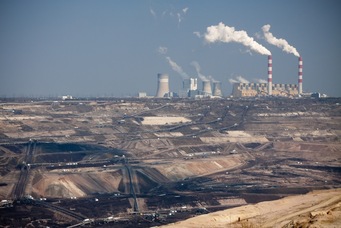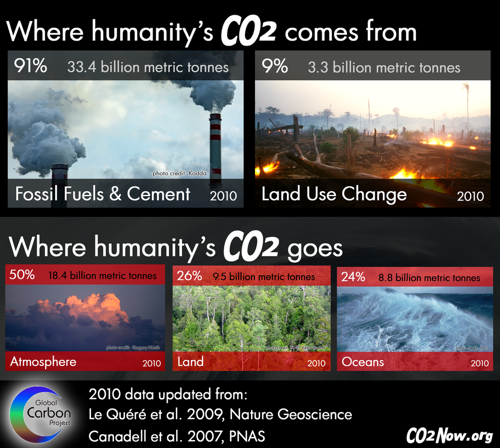
Fossil Fuels

"Today, we are on the verge of a new era, the “Age of Ecological Scarcity”. For the first time in history, fossil fuel energy and raw material use, environmental degradation and pollution may be occurring on such an unprecedented scale that the resulting consequences in terms of global warming, ecological scarcity and energy insecurity are generating worldwide impacts. If humankind is to succeed in overcoming these global problems, we need to find the next “new frontiers” of natural resources and adapt economic development accordingly. This will require developing low-carbon sources of energy, processes of production and technological innovation that require less environmental degradation and pollution. It will also mean instigating institutional changes, creating global carbon and environmental markets, and implementing new policies to foster a new era of “sustainable” economic development." ~ The World Financial Review
Oil
Oil, which formed from ancient plants and animals deposited some 500 million years ago, is the world's primary fuel source for transportation and has been a defining force of our times. Oil created economies, but also condemned them; shaped political boundaries, but also bought them; won wars, but also created them; remade the urban environment, but also polluted it; released a low price tag, but "externalized" its true costs; created jobs, but abused rights and degraded health. Everything good that has come from oil has come at a price far higher than what you see plastered on billboards over gas stations - a price that nature and society shouldn't have to endure so heavily and an addiction that unless triumphed, will cause climate catastrophe and all of the subsequent ills that follow.
Coal
Coal, which was formed from prehistoric vegetation that accumulated about 300 million years ago, is an abundant and superficially cheap fossil fuel compared to the soaring prices of oil and natural gas, and accounts for almost 40% of total worldwide power generation. Coal is also the biggest source of man-made CO2 emissions, which makes coal the single greatest threat to the stability of our climate, and is responsible for immeasurable impacts on human health through the emissions of mercury, arsenic, dioxin, acid gases, such as hydrogen chloride, and other dangerous pollutants, and the environment in the form of particulate emissions, ground level ozone, smog, acid rain, coal ash waste, mountaintop removal and global warming.
Natural Gas
Fracking, also known as hydraulic fracturing or industrial gas drilling, is a process used in 90% of oil and gas wells which injects tens of millions of gallons of water, chemically treated sand, and toxic chemicals, which have not been fully tested or disclosed to the public, deep into the ground at extremely high pressures to break apart dense shale rock, releasing the hydrocarbons, such as gas and oil, contained inside. This mixture, known as "frack fluid," creates "fractures" in the shale which allows the gas to seep out. From well site preparation, to drilling and production, to the disposal of wastes, this dangerous, unconventional method of obtaining oil and gas is a shortsighted energy strategy that is contaminating drinking water and soils with toxic chemicals, polluting the air, jeopardizing our health, devastating landscapes, causing earthquakes and contributing to climate change and extreme weather.








